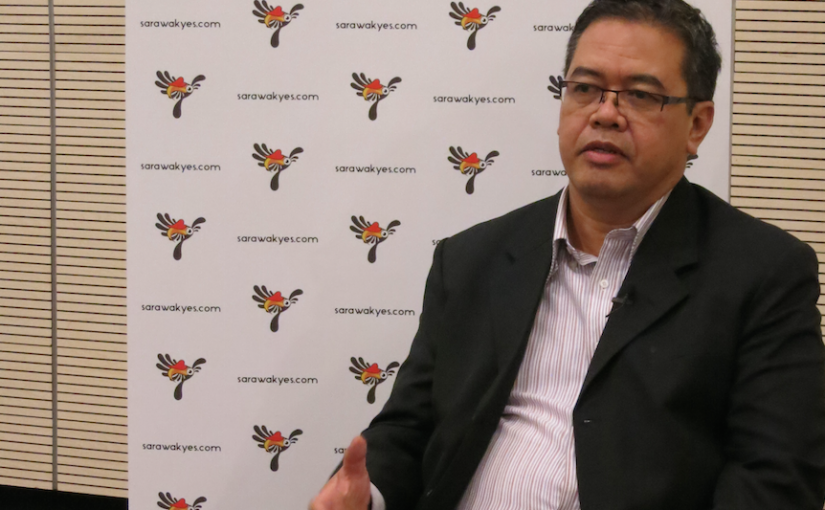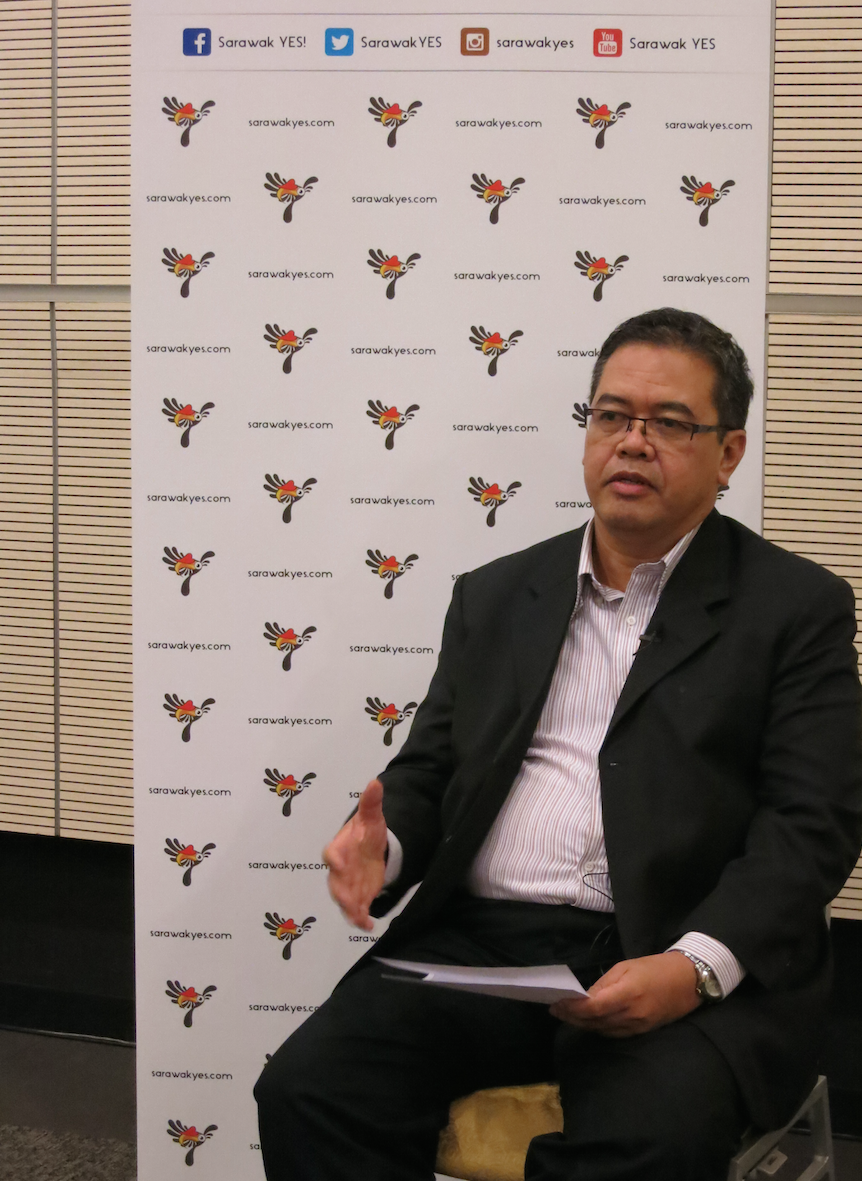Prof. Dato’ Abdul Hakim Juri, Vice Chancellor, University College of Technology Sarawak (UCTS), spoke with SarawakYES! on the sidelines of the World TVET Conference 2015 in Kuching about how to ensure students are ready to enter the workforce.
Below is a transcript of our interview:
Q: How do you feel educational institutions these days help prepare graduates to ensure that they can feel confident and ready to enter the workforce?
A: Definitely it is very challenging now for educational institutions to prepare graduates for the workforce. Of course, the role of educational institutions is to provide the graduates with the knowledge that they require, the functional skills that are required for them to be able to exit from the educational institutions and join the workforce. So that’s an important role that has to be undertaken by the institutions, providing the knowledge. Secondly, the graduates also have to be provided with the necessary skills, the soft skills that are actually required. During this conference it was mentioned that employers employ based on technical skills and knowledge, but many employees are being sacked because of a lack of this soft skills that they do not have. So it is important for educational institutions also to provide the graduates with the necessary soft skills, the social skills that they require to be able to work in the industry.
There are a lot of expectations now in terms of communications skills, ability to think critically, to solve problems that are actually new, a lot of demand in terms of their ability to work in a team, and many additional skills that are required by industries. So educational institutions will have to also implement and deliver this within their curriculum, and mostly are being done through core curriculum activities and a lot of other initiatives being done at the institution – not just in the classroom, but also outside the classroom.
Of course, there is also the responsibility of the educational institution to change the attitude of these youngsters, or these students, because attitude is actually very important now to be prepared for work. It is very important for them to have the right attitude, not to think negatively on anything that is actually being thrown to them. It is part of the learning that they have to go through. So young people will have to be transformed from having certain negativity about things. Their attitude also has to be transformed to become more positive people, willing to continuously learn. So all in all, educational institutions will have to give them this knowledge, the skills and also the right attitude, so that they are more confident that they are more prepared to be entering the workforce or to join the industry.
Q: What are some of the right approaches for graduates for them to gain a career to fulfil their needs.
A: Young people sometimes have their own wishes, of what they want to do, what they want to become. And I think this is good with the various advancements that we have in technology, young people can actually find out what is actually required out there, what is actually the demands in terms of the industry. So for our graduates, for educational institution graduates, they have to start understanding what is happening outside of their world, what is happening in the country, what is happening in the State in terms of the developments that are taking place. And being involved in the discussion of the economy, knowing what new industries are actually being set up. From there they will be able to identify suitable careers.
Some may want to adopt careers that are actually of interest to them, but they may find it difficult later on in terms of being able to find jobs or be able to start up any kind of businesses if they are actually entrepreneurial. So it’s very important to know more than just what is happening currently, for example, in the school or in the institution. They have to be exposed, there has to be a lot of counseling done, in terms of what are the prospects, what is the future. Some of the jobs may not yet exist. There may be jobs that are going to be created in the future, so graduates have to be open-minded. Of course, an education prepares them towards a certain kind of actual profession, but they don’t necessarily have to stick to that profession, they have to be able to adapt to the changing situation that is going to take place in this world.
So, it is important for graduates to be able to have continuous learning, finding out what is going to be their future, what are the new technologies coming in, and from that they will be able to identify suitable paths or roots for their career that will be rewarding and also successful for them.
Q: Are there any tips you can share on how graduates can stand out?
A: Again I think a lot has to depend on their own initiative. Educational institutions can provide the environment, educational institutions can provide the various programs, but if the students do not want to take the initiative to learn all these many skills, then they will be left behind. So I think students must be willing to work extra, spend more time on activities organised by the institutions, and not just attend class and sit for exams. So for students to stand out they have to take up these leadership roles, they must be willing to be responsible … and this will then place them in a different position when they graduate, and when they leave the educational institutions they are much more prepared, and they will not be shy, they are willing to take up any challenges given to them.
Q: Tell us a little about the workshop that happened earlier on today?
A: This workshop was discussing about the use of e-learning in technical education and vocational training. There is a misconception that maybe e-learning is not really suitable for TVET because TVET tends to be standing for very much skills, very much a hands-on kind of approach towards learning. But we now see that there is actually a lot of e-learning already being implemented and used to support education and learning in TVET – maybe not completely, but some aspects of the program can actually implement e-earning using the various technologies that have already been incorporated.
So the discussion was more in terms of the experiences of the presenters from New Zealand, from Portugal, from the U.S., and from Philippines, where they are already implementing this in their TVET programs. So the conclusion is that it does actually help in terms of improving the delivery of the TVET programs, it helps to reduce the cost of not having to have a lot of equipment. So it’s all up to the innovation and creativity of the institutions in terms of how to actually apply this e-learning in their programs.




